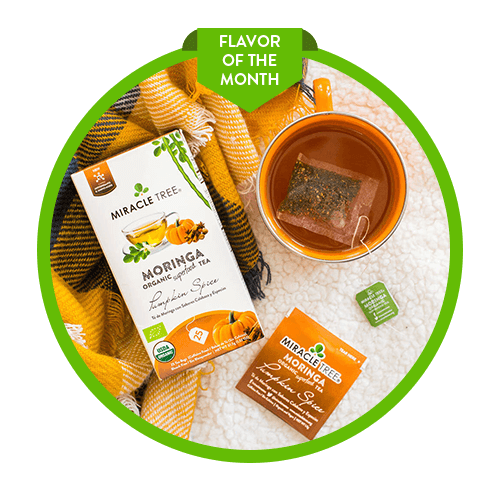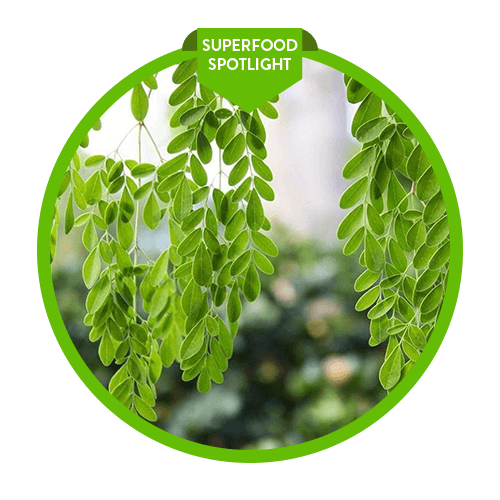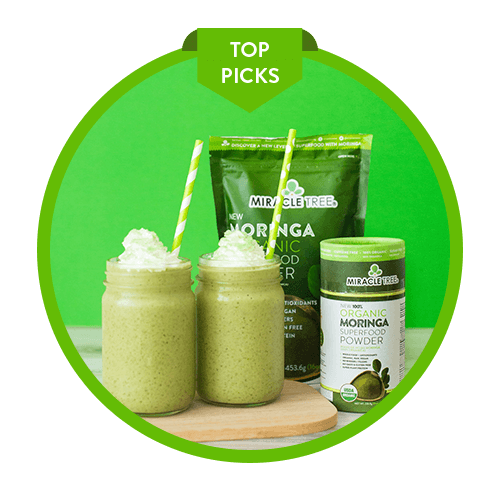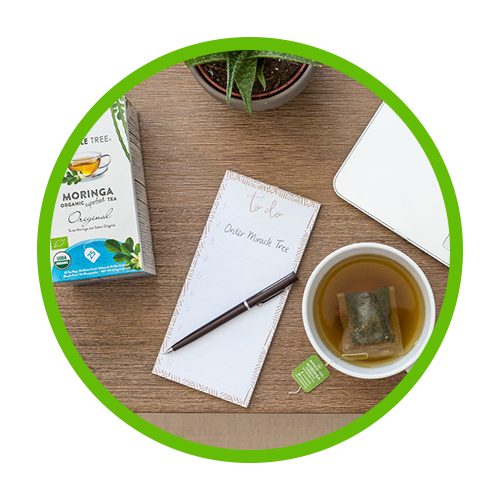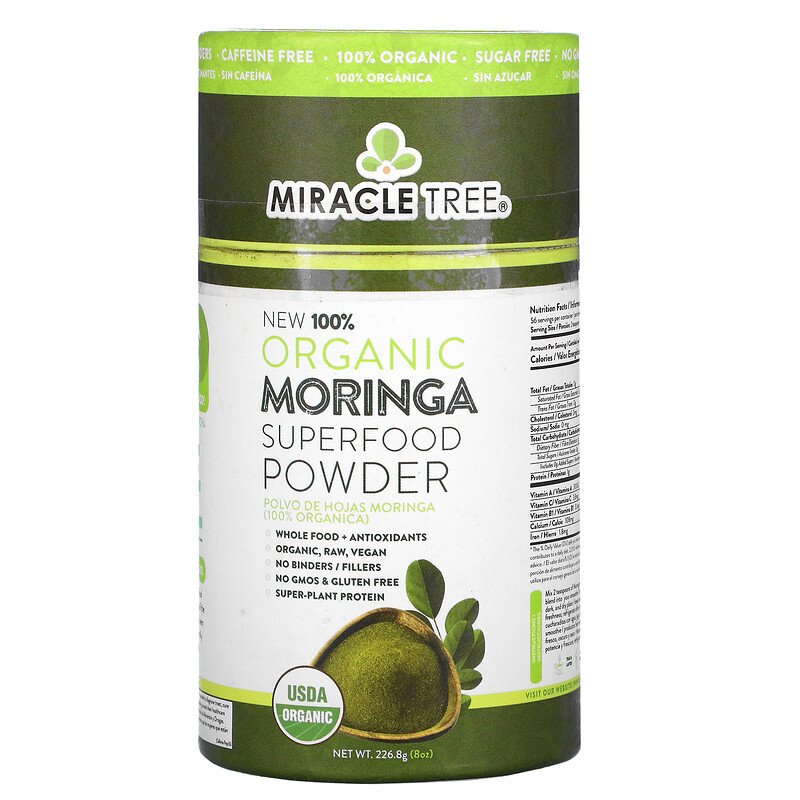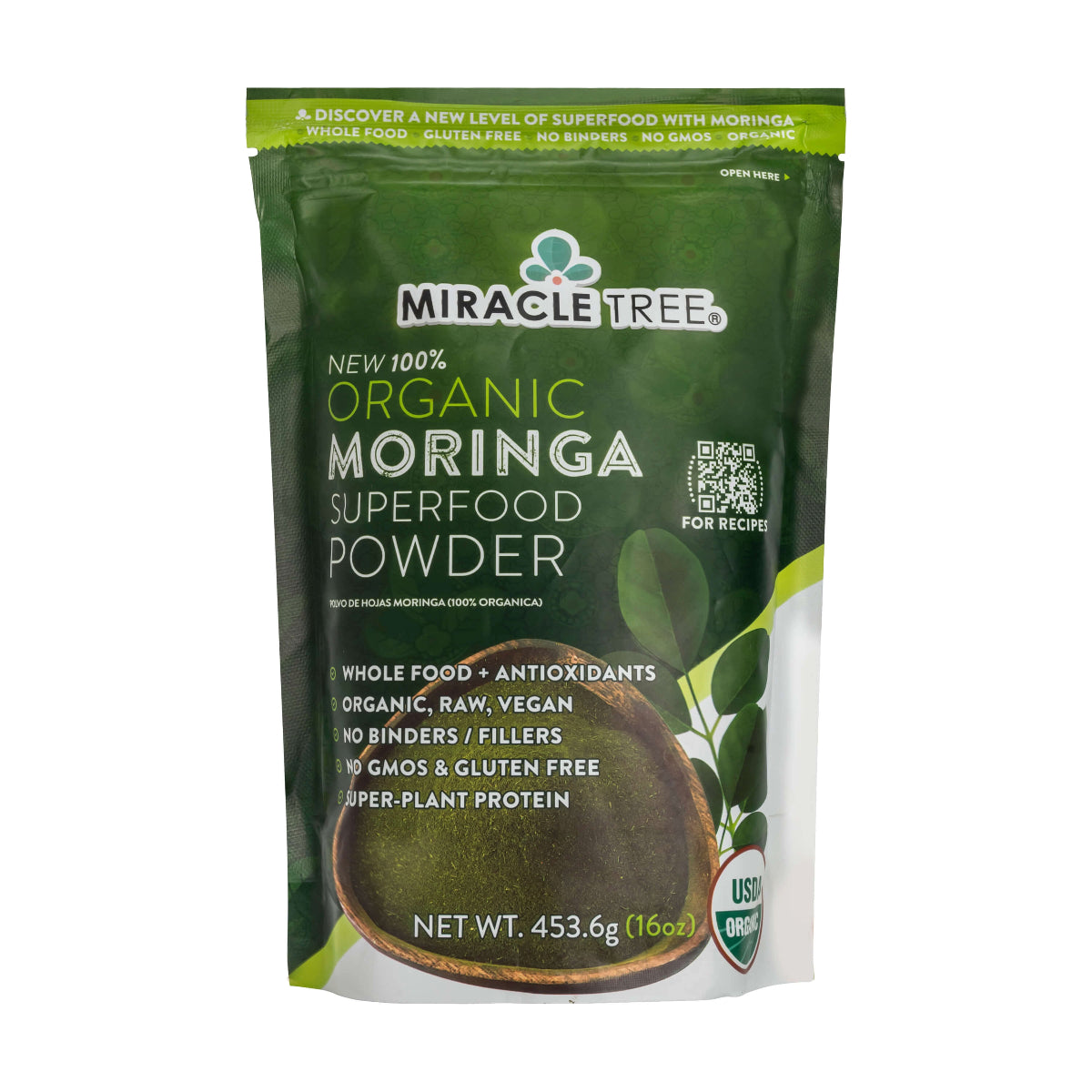The moringa vs. matcha debate is one of the most popular green superfood discussions in the consumer market. The sheer reason for their popularity, besides of course some serious health perks, is their versatility. Both of these green superfoods can be consumed in several forms and taste just as good in each of these forms. Interestingly, while both the superfoods have some basic similarities, their nutritional content offer distinctly different benefits. Moringa vs. matcha teas are both made from the leaves of the plants. These two supergreen cousins are widely and most commonly consumed as teas. To understand and explore the differences between the two, it is important to know a little bit about the two plants—where they originate from, how the teas are processed, their health benefits and so on.
Matcha is a powdered form of green tea and has widely acclaimed health benefits. Similar to the origin of most teas, matcha tea is also made from the leaves of the camellia sinensis plant. The difference therein lies in the oxidation process. While most teas undergo a prolonged oxidation process to develop certain flavors, matcha is steamed soon after its harvest to prevent oxidation, helping to preserve the natural compounds, fragrance and natural color. Unlike normal green tea, which is only consumed as a diluted infusion, matcha is ingested whole. The health benefits of drinking a matcha tea or a latte is widely touted. It’s rich in vitamin C, the calming amino acid L-theanine and is chock-full of a class of antioxidants called catechins, most notably EGCG (epigallocatechin gallate). The rare amino acid L-theanine promotes a state of relaxation and enhances cognitive function, while the chlorophyll content in matcha helps to detoxify and purify the body.
Moringa tea comes from the dried leaves of the moringa oleifera plant, known in popularly as the “drumstick”, “miracle” or “horseradish” tree. The tree is native to the Himalayan foothills of India and has been used in and around the subcontinent for centuries due to its prolific nutrient composition. It is credited with the presence of numerous essential vitamins and minerals that may boost the immune system, improves skin and hair health and aids in digestion, among other things. The difference between moringa vs. matcha can be categorized according to the following three profiles.
Flavor
Despite being supergreen cousins, one of the primary differences between moringa vs. matcha is their flavor profile. The whole leaves of matcha taste earthy, have a grassy texture and a slightly sweet aftertaste. Moringa, on the other hand, has a subtle bitterness to it and is more pungent than matcha. It tastes like a mild, peppery version of a normal green tea and has a slightly more vegetable flavor to it which is why it is more widely used in salads, smoothies and teas.
Nutritional Content
In the battle of moringa vs. matcha’s nutritional content profile, moringa takes the lead. Moringa tea is easily one of the most nutrient dense teas that can be consumed. The powder, made from its leaves are rich in protein, including the nine essential amino acids, vitamins A, B, C and E, iron, calcium, potassium, polyphenols and flavonoids. This tea is packed with antioxidants such as vitamin C and beta-carotene that may offer a range of health benefits besides eliminating free radicals in the body, thereby preventing the onset of oxidative stress that can be potentially harmful. Moringa tea is anti-inflammatory in nature due to the presence of inflammation-fighting agents known as isothiocyanates, which may alleviate low-grade inflammation. Moringa contains sufficiently higher levels of iron, calcium and protein as compared to matcha.
Caffeine
Unlike matcha, moringa is caffeine-free but is a natural source of energy booster as it is an adaptogen. Adaptogens are a class of botanicals that increase endurance, energy and concentration, may aid the stress responses and regulate other systems and functions without caffeine. Matcha contains caffeine but is gentler than coffee as it relaxes and calms the mind without giving any jitters.
All things considered, it is abundantly clear that both moringa vs. matcha are extremely healthy. However, if we are to make a choice in terms of efficiency, nutritional content, health benefits and overall versatility and usefulness, moringa wins the battle of the supergreens.

